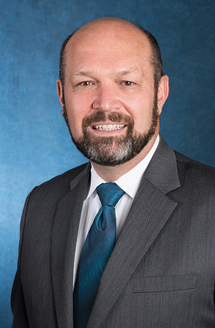
Dr. Friedberg
January 2017—In February 2002, with Americans still reeling from the Sept. 11 attacks, many were preoccupied with rumors suggesting that the Iraqi dictator had acquired weapons of mass destruction and intended to supply them to terrorists. When a reporter asked U.S. secretary of defense Donald Rumsfeld if any evidence supported the rumors, he famously replied: “. . . as we know, there are known knowns; [that is to say] there are things we know we know. We also know there are known unknowns; that is to say we know there are some things we do not know. But there are also unknown unknowns—the ones we don’t know we don’t know.”
Most (though not all) of the commentary that followed suggested that his reply was evasive. Either way, while Rumsfeld did not originate the concept (“known unknown” dates to the 19th century and poet John Keats), he is credited with its release from the lexicon of poets and administrators and its now secure place in popular culture, where the rest of us can enjoy it.
Political messaging obscures by design, not accident. The comment made sense in context and Rumsfeld was known to employ enigmatic language to derail a path of inquiry. The initial question was about evidence or the lack thereof. He didn’t have it, apparently, and distraction was useful. He didn’t answer the question that was asked; he answered a different question. We were left to contemplate the dangers of unknown unknowns.
Fifteen years later, terrorism and international conflict continue to be daily news and we are processing another hotly contested presidential election. This time, however, we have added deep concerns about the directions our health care system may or should take. All of these uncertainties constitute a troubling modern twist. Apparently, the known known of the moment is the constancy of uncertainty. We all believe that the political landscape will become more clear in time, but that is a process that must yet play out. We need to be wary of distraction and carefully play each hand we are dealt.
I don’t expect we will be able to sort the signal from the noise for some time yet. The known unknowns are so numerous that we can’t do much about them until the smoke clears, let alone begin to address the unknown unknowns. For now, we might better focus on how uncertainty can drive creative thinking about what we can get our heads and hands around today. For the time being, we might as well focus on what we can control. Let me give you an example.
A few years ago, after automated white blood cell differentials had become well established, many of us had persistent challenges with statistically naïve clinicians who favored manual over automated differentials. We all attempted the standard solutions (education and training), which gave us the occasional success story but rarely permanent improvement. When our hospital embarked on a massive project to replace the electronic medical record system, we did not include a manual differential as a separate order, relying instead on pathologist-driven criteria for peripheral smear review. Clinicians could always order a peripheral smear review by a pathologist, of course. We waited for objections but the silence was deafening. The number of manual differentials dropped dramatically. Quietly and effectively, we had improved quality of care and resource utilization.
I learned from that experience that the confusion of accelerated change can create opportunities to correct or improve practices that are controversial solely for reasons of culture or habit. It taught me the value of readiness to reconsider the received wisdom. And it reminded me that disruption creates distraction which can permit both good and bad things to slip under the radar. When there is uncertainty, we should be more evidence driven, not less.
As physicians and scientists whose intuition is enriched by experience across the continuum of specialties, we know that newer is not always better and natural history is always relevant. It is our job to ensure that medical judgments are scientifically informed. It is also our job to keep an open mind about the human element. People can surprise you. I have a hopeful story about that, too.
In 2006, Massachusetts sought to establish a mandated coordinated health care system. Discussions about how the bill would be structured were already underway when I joined a group from the Massachusetts Society of Pathologists that met in Boston to talk with a legislative leader about how we might fit into the new model. Although we had feared a rigid bottom-line mentality, it soon became apparent that his thinking was more sophisticated. Personal experience with a child’s illness had brought him to recognize that capitated care incentivizes less care, even when more focused attention is clearly needed. He became convinced that the law should encourage appropriate levels of utilization—neither more nor less. We suggested language recommending that each coordinated care organization appoint a laboratory utilization committee whose membership specifically included the CLIA medical director. This would ensure that a knowledgeable physician whose primary ethical and fiduciary responsibilities were to the patient would be in a key position of influence. The legislators took it from there. Not all unknowns lead to danger. People can surprise you.
Pathologists have a responsibility to translate science into medicine. It is also our job to help colleagues remember to integrate the natural history of the patient’s condition in clinical planning. If we make those things part of the conversation, what is for us a habit of thought can become a cultural given across our institutions. If we are tactfully insistent, thinking scientifically and employing an evidence-based approach can become the norm both inside and outside the laboratory.
[hr]Dr. Friedberg welcomes communication from CAP members. Write to him at president@cap.org.
 CAP TODAY Pathology/Laboratory Medicine/Laboratory Management
CAP TODAY Pathology/Laboratory Medicine/Laboratory Management
